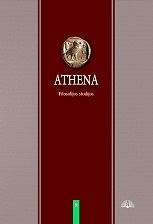Juslinių patirčių artikuliacijos praeities konfliktų pasakojimuose
Articulation of Sensual Experience in the Narratives of Former Conflicts
Author(s): Jurga JonutytėSubject(s): Philosophy
Published by: Lietuvos kultūros tyrimų
Keywords: memory of past conflicts; narratives; sensual experience
Summary/Abstract: Memories of direct witnesses are often transmitted in repeating of some sensual data, remembrance of which is encapsulated in few words that describe the very first impression and first understanding of what is happening right now. No even step further: no reaction to any explanations of reasons or logic of an event and (what is the strangest aspect) usually no hatred to executioners; only total incomprehensibility of situation is shown, repeating and repeating the sensual data of past experience. Those spontaneous narratives of witnesses often bear in foreground only the message about absurdity of what happened (the testimony of absurdity) and this is the reason why they repulse any historically political scheme; it is impossible to mix them with historical-political explanations. The main question of the article is about the status of such articulations of memories: do they represent the disorder of the storyteller’s identity, or can we treat them as an expression of purposeful memory articulations? The transition from partial inexpressibility of traumatic memory to the fluent narratives of re-tellers enhances the schematic understanding of an event and obliterates the painful experiences of inter-huma (epistemologically-ethical) injustice. All the political conflicts, apart from being historical events, are human or interhuman acts, and this later plane is the plane of the memory of witnesses. What is pathetic and celebrative at the level of events can be completely collapsed and ruined at the level of inter-human acts. Therefore, we can not detect any difference between trauma and guilt looking at them from the perspective of memory studies. These attitudes can be transformed into different kinds of articulations; one of them is a sensual articulation, which, as it is shown in the article, is equally voluntary and purposive articulation of the past. The article discusses three examples of such narratives: a fragment from the documentary film, a case of spontaneous narratives recorded during the anthropological research of the author, and one episode from the fiction-literature.
Journal: Athena: filosofijos studijos
- Issue Year: 2012
- Issue No: 8
- Page Range: 167-182
- Page Count: 16
- Language: Lithuanian

